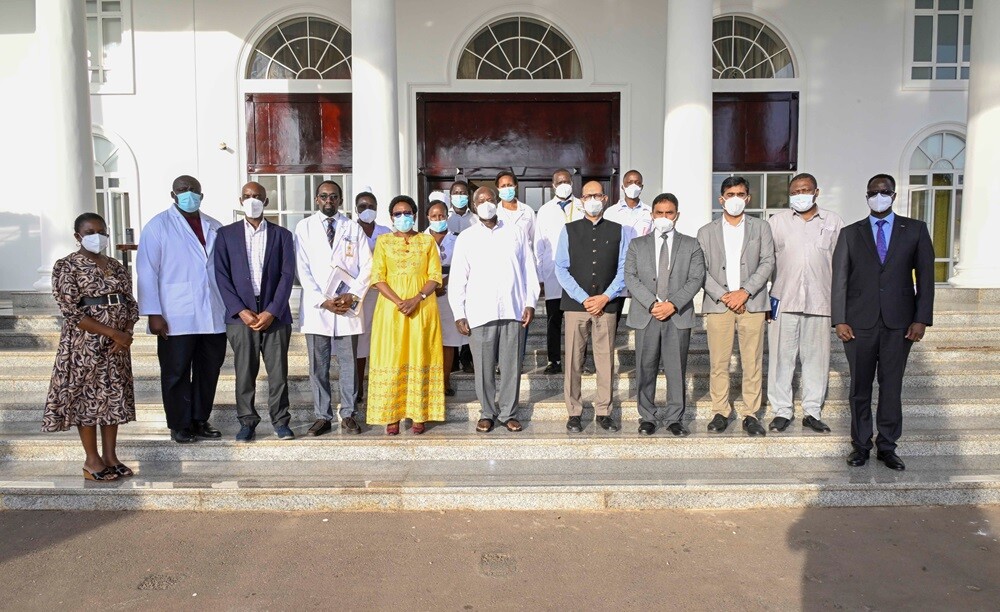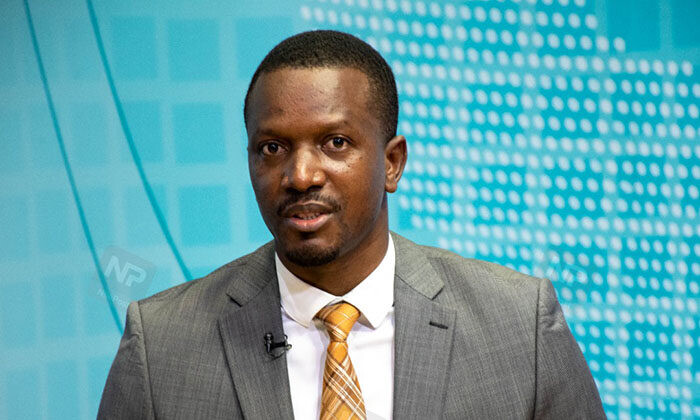By Hudu Hussein
A kidney transplant is a complex procedure. It involves attaching nearby blood vessels of the donee to the donated kidney and the connection of its ureter to the bladder of the sick person. The very first of its kind in Uganda was performed recently in December 2023. Mark Kiyemba Maurice was among the more than 400,000 Ugandans suffering from Kidney failure.
In December 2023, his government through the health services at Mulago Hospital gave him back a healthy life free from renal failure. The first Kidney transplant in Uganda has marked the beginning of several of these and from now on, our people will not have to travel outside the country to get this service. The kidney transplant is not the only major scientific breakthrough we have had in recent years.
Interventional radiology
Still in 2023, the first-ever interventional radiology procedure in Uganda was performed on Frank Kasaija, who sustained an abdominal injury while dealing with cattle. With interventional radiology, there is no need for anaesthesia. It is only in extreme cases that anesthesia may be used. Very importantly, Frank never paid a shilling to access this world class procedure.
ALSO READ: Inside Museveni’s meeting with scientists after Uganda’s successful Kidney Transplant
We all know about the separation of Siamese twins three years ago. Remarkably, the beneficiaries are usually ordinary Ugandans whose only hope is in God and a good government. It is no surprise that in a secure country, the structures that President Yoweri Museveni and our government have built have increased the life expectancy of Ugandans to 64 years.

Universal health coverage
The goal of the Ministry of Health is to ensure access to adequate and quality health promotion, disease prevention, treatment, palliative and rehabilitation services in Uganda and achieve the universal health coverage target of 90% by 2030. The simple meaning of this is that Ugandans, by that set time should be able to access a full range of the quality health services that they need, when and where they need them, without financial hardship.
In light of this, we have witnessed the construction of the regional oncology centre in Gulu, northern Uganda. Similar construction of an oncology centre in Mbale in eastern Uganda, is underway and the same applies for Mbarara. We now boast 62 general hospitals, 17 regional referral hospitals spread across the country, 14 of which are equipped with CT scans. The CT scans were promised in October 2022.
President Yoweri Museveni’s fulfilling of promises made regarding the health sector is not a new phenomenon. The abolition of user fees in 2001 and the decentralisation of the supply of medicine are some of the governmental initiatives that can be directly attributed to President Museveni.
Uganda’s security problems in the 70s and 80s translated into a failed health system where the governments of the day wholly relied on donations from the World Bank to provide health services. Added to that, user fees purportedly meant to increase revenue for the provision of better services only served to exclude most of the population from accessing medicine.
It was during the 2001 presidential election that President Museveni publicly promised to do away with the user fee. He did it after the election and since then, statistics show that Ugandans have a greater tendency to visit government hospitals as opposed to the private ones. Only private wings charge money for health services in Uganda today. These are the key achievements most people and critics of the Government don’t see.
There is far less wastage of medicines in government stores today because of the decentralisation of the supply of medicine under the NRM decentralisation system of governance.
Medicines are now distributed from the district stores to hospitals unlike in prior regimes where medicines used to expire at the central stores without proper distribution to the hospitals nationwide.
These are some of the rewards of a good government system under the NRM Government. This government has had a constant upward trend in the healthcare system that cannot be faulted even by the Government’s harshest critics. The fight against the spread of HIV in Uganda for instance is a global example.
Other countries like South Africa have grappled with the virus while ours here has implemented strategies that have reduced the presence of the virus from 16-30% in the 80s to just about 6%.
The same can be said of the COVID-19 pandemic where we registered the lowest deaths in this part of the globe despite having so many infections.
Human rights activists obsessed with throwing all sorts of accusations of human rights violations at the Museveni regime forget that these successes are the fulfilment of the right to health, a fundamental right more necessary to the ordinary Ugandan that the isolated instances of civil/political accusations.
It is high time politicians in Uganda shifted from the usual non-beneficial rhetoric of insulting President Museveni and selling their hatred for him to a gullible public to proposing ideas that could advance the nation in such ways.
Hudu Hussein is a Lawyer and RCC Masaka City
Do you have a story or an opinion to share? Email us on: dailyexpressug@gmail.com Or follow the Daily Express on X Platform or WhatsApp for the latest updates.

